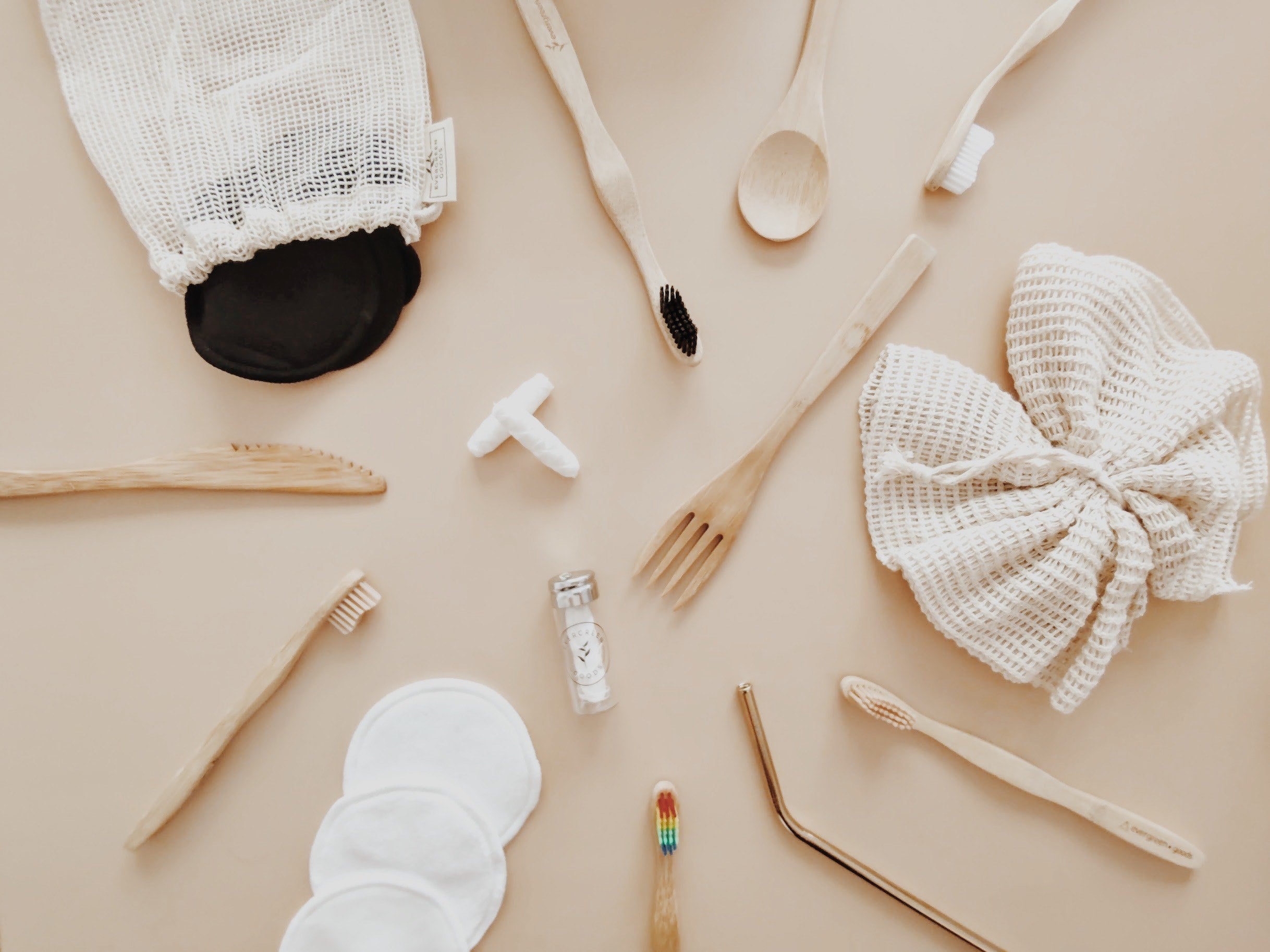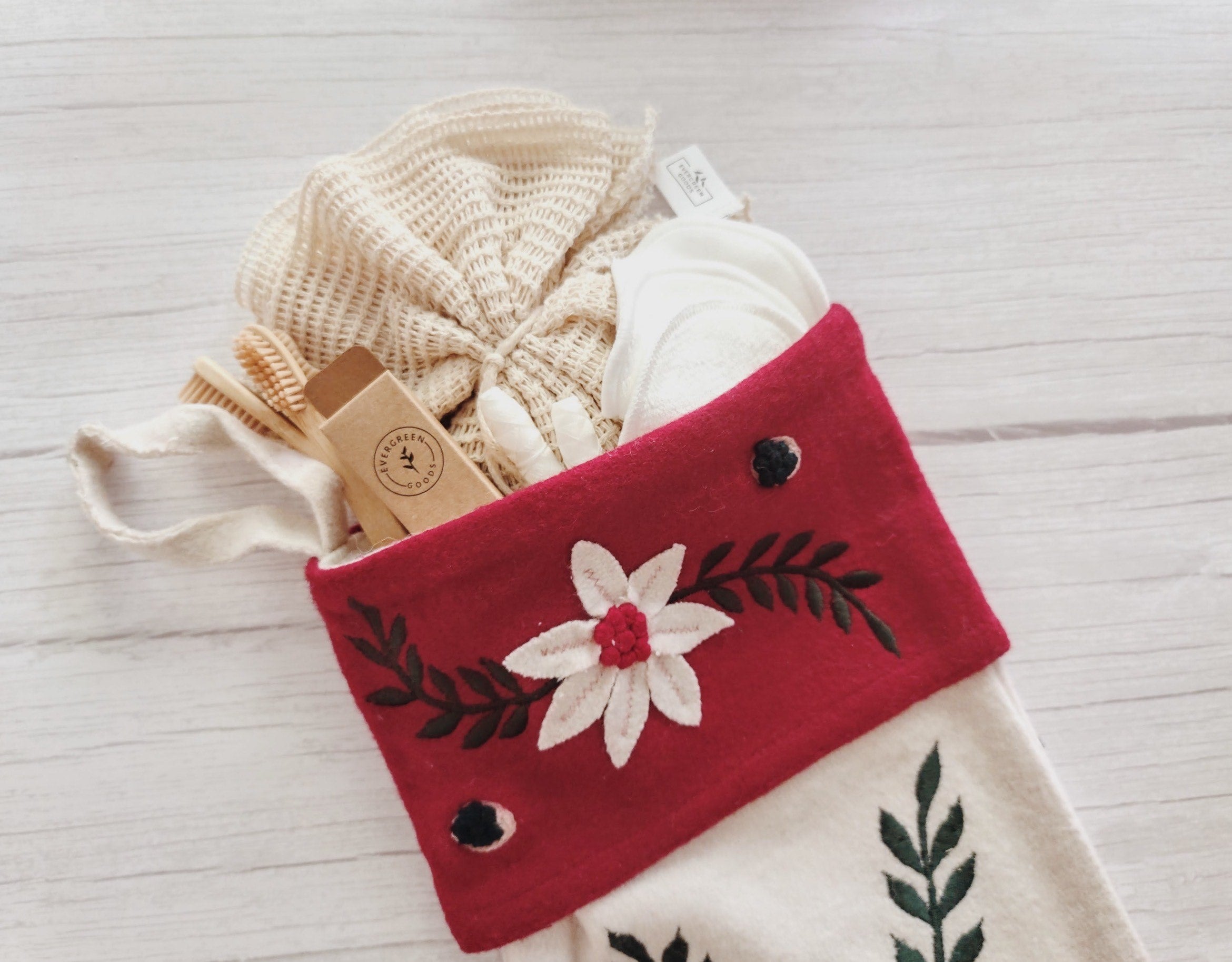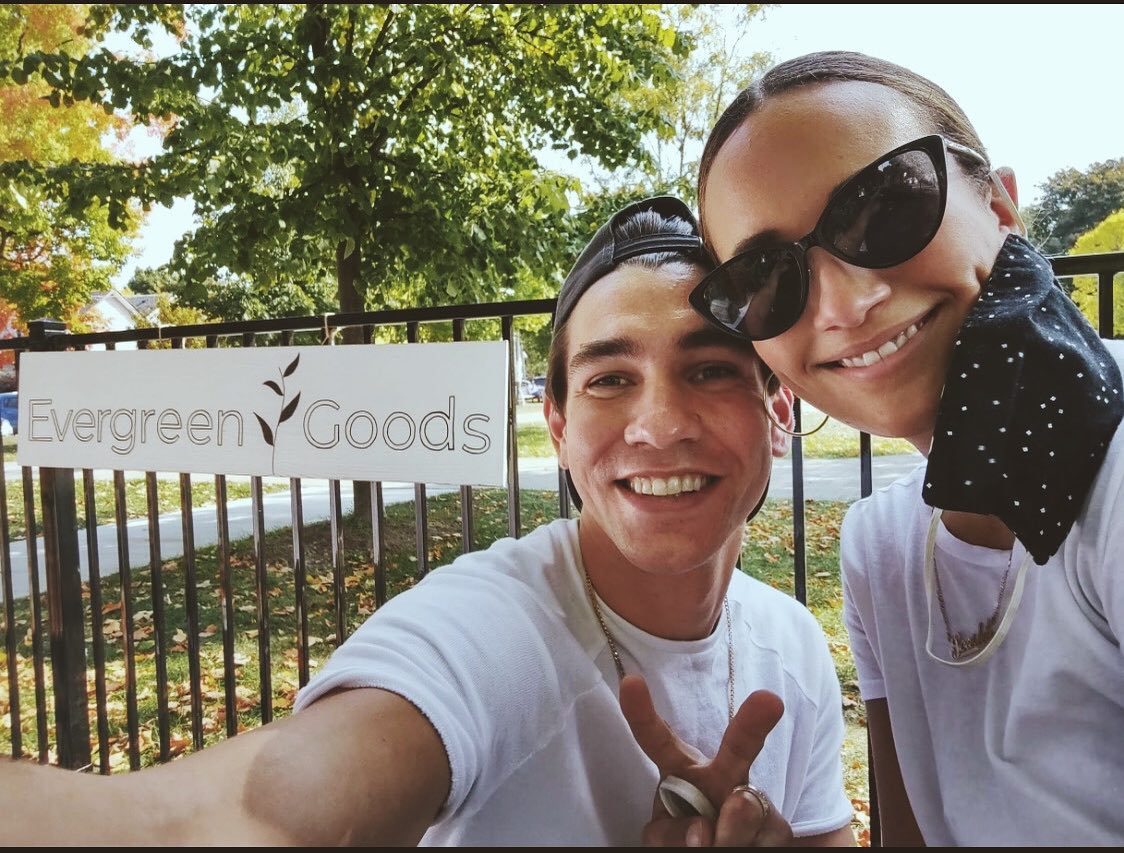Green Office Ambassador Scarlett van Berkel shares her personal sustainability journey starting her own business, Evergreen Goods.
Tell us about yourself

I started Evergreen Goods the July of the first year of the pandemic. It was fuelled by a feeling of helplessness regarding the political climate at the time; witnessing hateful rhetoric emerging, environmental rollbacks and had a desire to connect and care for our community. Folks were struggling and continue to be affected by a combination of these factors (the pandemic, the environment and policy). The work strives to account for the needs of folks to be able to acquire sustainable goods at an accessible price, we try to give back in terms of community outreach and education.
What inspired you to start this initiative? What sustainability issues does your group support?

We launched with two items, a bamboo toothbrush and vegan biodegradable floss – two regenerative resources. It was inspired because I hated flossing on account of all the plastic, and harm to precious ecosystems and vulnerable species. The absurd amount of waste created by the beauty industry alone is astounding. I realized that if I was feeling this way, perhaps there were others having this experience. We figured we could make a difference by creating an alternative that was accessible in price and has a minimal impact on the earth. We built the company on the premise of community engagement, where we could offer sustainable alternatives and engage with people in our community in conversation about the environment and policy. We have partnered with One Tree Planted and plant a tree for every purchase and with Offset to be able to provide net-zero shipping. These partnerships help us to achieve one of our core values of doing no harm.
What was a memorable experience that you feel can or does have an impact on campus/community or more?
It’s inspiring when an organization that puts sustainability at the forefront of its values. Sustainability is more than purchasing environmentally conscious products or fitting your trash into a mason jar. It includes consideration of community and individual wellbeing. Joining organizations at UW created an avenue for important discussions around topics such as Equity (central to sustainability) and community engagement (central to environmentalism). Engaging with Sustainability in a meaningful way in a Professional setting through initiatives like the Green Office Program brings me joy. These interactions have a multiplying effect, from the micro to the macro, we will inspire change!
What is your vision of a sustainable future?
Developing an awareness of the natural rhythms of the earth, creating space for diverse and ancestral practices, caring for and amplifying Indigenous communities. Striving to be in tune with natural cycles to cultivate awareness and consideration of the impact of our daily choices; to realize ourselves as in relationship to the earth rather than separate. Environmental Justice - people over profits; there is no economy without the environment, and the environment reflects both the earth and the wellbeing of its people. An acknowledgement and strategy to protect and repair the ecosystems and communities which exist on the margins of society. A sustainable future means recognizing that the Earth is a living organism whose wellbeing is not protected by its socially constructed borders and requires the implementation of a framework which truly strives for social and ecological balance on a global scale
Are there any resources for those who are interested in learning more about the sustainability that you would like to share?
Early in my quest for a more sustainable lifestyle, I read about the Dirty Dozen by David Suzuki. My daughter was little at the time, and I was doing my best to keep anything harmful or toxic out of our home. This guide talks about 12 prevalent chemicals that exist in our products that have significant influence on our physiological and environmental wellbeing.
Some books that have inspired me over the years:
i. Braiding Sweetgrass – Robin Wall Kimmerer
ii. This Changes Everything – Naomi Klein
iii. Our Ecological Footprint – Mathis Wackernagle
iv. Intersectional Environmentalist – Leah Thomas (@greengirlleah)

